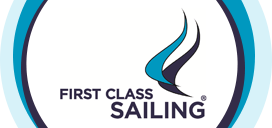
- Information
- Call Us: 0203 006 3717 (9:30am-4:30pm)

RYA Yachtmaster First Aid Requirements
One of the prerequisites for taking the RYA Yachtmaster Coastal or Yachtmaster Offshore qualification is having a valid first aid certificate. First aid at sea is an essential skill, as in the unlikely event of a medical emergency, prompt action and first aid knowledge can save lives.
So, which first aid certificates are valid for a Yachtmaster qualification?
Your first choice and default qualification should be the RYA First Aid Course . It’s a one-day course that we offer in Southampton and London. The course is specifically tailored for the unique challenges of administering first aid at sea, and once qualified, it is a valid first aid course for those taking their Yachtmaster qualifications next.
It’s worth noting that the RYA First Aid Course is “also accepted by the Maritime and Coastguard Agency (MCA) for use on board small commercial vessels and by World Sailing for compliance with the Offshore Special Regulations and covers the requirements of the Health and Safety regulations for the purposes of emergency first aid at work training.”
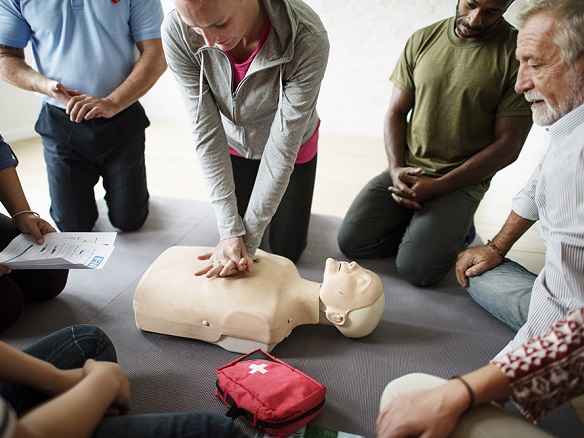
However, alternative first aid qualifications are also valid pre-requisites for Yachtmaster, but only if they meet the following criteria as specified by the RYA:
Minimum requirements for a qualifying first aid course
The course duration should be one full day, with at least six hours of instructional time. Once completed, the student should know the following:
- Understand the role of a first aider regarding: • The importance of preventing cross infection. • The need for recording and/or reporting incidents and accident. • Assessing a scenario and circumstances to ensure they act safely, promptly, and effectively in an emergency.
- Can perform CPR to current protocols and understand the differential for drowning.
- Understand the importance of the recovery position and the need to modify it for small spaces.
- Can administer first aid to those who are unconscious.
- Can identify types of external bleeding and control bleeding.
- Can use appropriate dressings, bandages, and other first aid equipment available, including improvised dressings and bandages.
- Understand the term shock, recognise and treat it.
- Can recognise and understands the treatment for hypothermia following immersion and/or exposure.
- Recognise the signs of a reduced level of response, with reference to serious head injuries.
- Can administer suitable first aid for: • breathing difficulties. • choking. • chest pain. • seasickness. • diabetic emergency. • anaphylaxis. • hyperthermia. • fractures. • seizures. • burns, including scalds, chemical and electrical. • minor injuries including small cuts, grazes, bruises, and small splinters.
- Can choose suitable first aid equipment.
You should ensure that your first aid certificate is retaken every three years so that you can keep current and fresh with how to administer first aid at sea.
Posted by: First Class Sailing
Post a Comment Cancel reply
Name (required):
Email (required):
Your comment (required):
- All Categories
- Antigua – Portsmouth
- Atlantic Adventures
- Boat Handling Master Classes
- Channel Crossing – Channel Islands
- Coastguard Closures
- Crowdfunding
- Experiences and Challenges
- Fastnet Race
- Global Ocean Race
- Golden Vanity
- Learn to Sail
- Night Sailing
- Norway Challenger
- OnLine Learning
- Passage Planning
- Portsmouth – Gran Canaria
- Round the Island Race
- RYA Competent Crew
- RYA Courses
- RYA Day Skipper
- RYA Diesel Engine Maintenance Course
- RYA VHF Radio Course
- RYA Yachtmaster
- Sail Round Britain
- Sailing Around Britain
- Sailing Events
- Sailing Holidays
- Sailing in media
- Sailing in the West Country
- Sailing Tales
- Sailing Trips
- Skippered Charter
- Southampton Sailing Week
- Traditional Sailing
- UK Sailing Holildays
- Whole Boat Charter
- Yacht Design
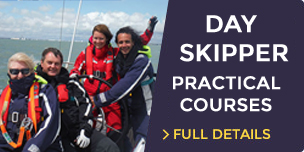
Sorry. No data so far.
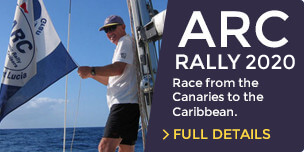
We love to hear from our customers and we are happy to call/email you to discuss your sailing needs.
Special Offers | | |
- Training Info
- RYA One Day Courses Syllabi
- RYA First Aid Course
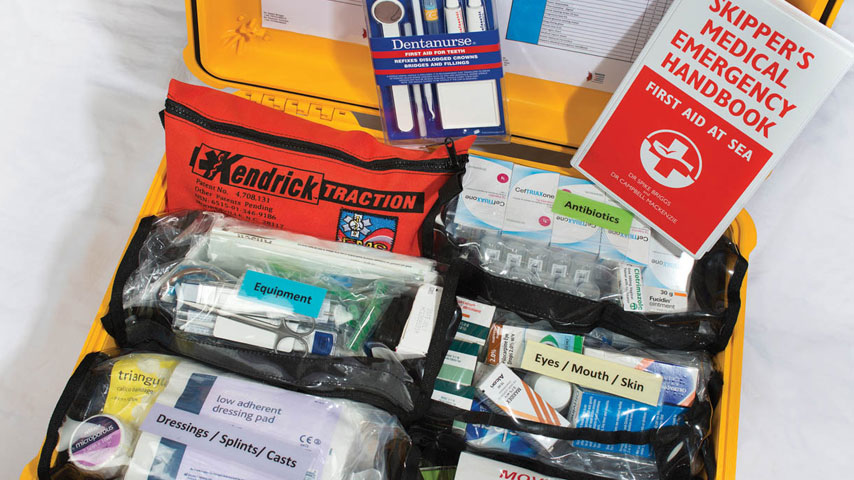
Written by Endeavour Sailing on 16 May 2017 .
RYA First Aid Syllabus
This course is required for your Yachtmaster Coastal and Yachtmaster Offshore , but a great course for anyone going out to sea.
In a medical emergency a little first aid knowledge and immediate action can save lives, especially in remote locations.
This one day course is designed to provide a working knowledge of first aid for people using small craft and to support skippers of yachts and motor vessels. It fulfils the requirements for skippers of small craft working with in 60miles of a safe haven. The course is MCA and Health & Safety Executive (HSE) approved.
The certificate is valid for 3 years and is accepted for
- The MCA Code of Practice for skippers of small commercial vessels up to Category 2
- A first aid certificate for offshore racers subject to ISAF regulations on first aid training (OSR:6.05i)
- All RYA practical instructors.
Course Duration
Course syllabus, assessment, immediate actions and the priorities within first aid.
- Understands the importance of avoiding cross contamination
- Understands the need to report and/or record incidents and accidents
- Knowledge of the benefit if immediate first aid
- Can asssss for dangers in first aid situations
- Understands that making the scene safe is the first priority
- Knowledge of the 3 aims of first aid
- Understands the need to look for external clues and collect information from the casualty and bystanders
- Understands the importance of identifying a life threatening situation quickly and summoning the Emergency Services without delay.
UNRESPONSIVENESS AND THE RECOVERY POSITION
- Can perforn a primary survey correctly
- Understands why an unresponsive casualty who is breathing normally should be put in the recovery position unless injury or trauma prevents movemner
- Can place a casualty in the recovery position effectively, with the airway open
- Understands why accurate positioning of the head is vital
- Understands the need to turn a casualty in the recovery position onto the other side afer 30 minutes
- Understands the need to monitor a casualty in the recovery position and protect them from the cold
- Knowledge of the possibility of modifying the position, if necessary.
CPR, INCLUDING THE USE OF AN AED
- Understands the chain of survival, and that a casualty is unlikely to recover with CPR alone
- Understands the aim of CPR is to maintain oxygen perfusion to the brain and other vital organs
- Understands that an unresponsive casulaty who is not breathing normally requires CPR
- Understands that agonoal breathing is not normal breathing
- Can perform CPR effectively to the current protocol
- Understands that a trained first aider should do rescue breaths as well as compressions, if possible
- Understands that vomiting during CPR is common and the action to take
- Understands that a Distress Announcement and Mayday should be sent, or help summoned by phone, before CPR is started
- Understands how an AED is used, and that they are completely safe
- Understands that an AED should be used as soon as possible
- Understands when CPR should be stopped
- Understands the dirrerent CPR protocol for a victim of drowning
- Can perform CPR effectively using the drowning protocol
- Knowledge of Acute Respiratory Distress Syndrome or secondary drowning/delayed drowning
- Can recognise the signs of secondary/delayed drowning
- Understands that immediate medical attention is required if secondary/delayed drowning is suspected
BREATHING DIFFICULTIES
- Understands the signs of mild and severe choking
- Understands how to perform back blows and abdominal thrusts on an adult
- Understands the signs of other breathing difficulties, such as asthma and hyperventilation
- Understands how an inhaler and spacer device are used
- Can treat and position a casulaty with breathing difficulties appropriately.
Session 2
Failure of the circulation: shock.
- Understands the term shock
- Knowledge of the most common causes of shock, including anaphylatic shock
- Can recognise the most important signs of shock
- Can treat and position a casualty appropriately
- Drowning, immersion hypothermia and cold shock
- Breathing difficulties
BLEEDING LOSS AND THE CONTROL OF BLEEDING
- Understands that volume of blood loss is very signifcant to deterioration of a casulaty
- Understands that a casualties past medical history may be very significant, including medication such as aspirin or warfarin
- Knowledge of different types of bleeding
- Knowledge of the need to take universal precautions when treating wounds
- Understands that the main method of treating bleeding is direct pressure
- Can apply a pressure dressing effectively, including improvised bandages
- Understands that an embedded object should not be removed
- Understands the term catastrophic bleeding
- Knowledge of theuse of haemostatic dressings and tourniquets in the case of a catastrophic bleed
RECOGNITION OF INTERNAL BLEEDING
- Understands that internal bleeding can be life threatening
- Knowledge of how an internal bleed might occur
- Can recognise the signs of an internal blee
- Can treat and position a casualty approriately.
ANGINA AND HEART ATTACK
- Understands that heart attack is a form of shock
- Knowledge of the causes of heart attack
- Knowledge that heart attack is a common cause of sudden illness in an adult
- Understands angina attacks often occur with exercise, and are frewuently relieved by rest
- Can identify symptoms of a heart attack
- Knowledge of differences between heart attack and angina
- Understands the use of aspirin in the case of a heart attack or angina.
LEVELS OF RESPONSE AND THE AVPU SCALE
- Understands that a reduced level of response indicates a problem with the brain
- Knowledge that there are many causes of unresponsiveness
- Understands that an unresponsive casualty who is breathing normally should be placed in the recovery position
- Knowledge that unresponsiveness can develop gradually
- Understands how the AVPU scale is used to determine level of responsive, and monitor improvement or deterioration
- Understands that there are many circumstances where assessing the level of response is important
- Can use the AVPU scale effectively
HEAD INJURY: CONCUSSION AND COMPRESSION
- Knowledge of the risks of serious head injuries on sailing boats
- Knowledge of types of serius head injuries
- Can identify signs of a serius head injury
- Understands that confusion and deteriorating level of response are signs that the condition is worsening
- Understands that a case of suspected concussions should be assessed by a professional
- Understands that a serious head injury may involve a spinal injury in addition
IMMERSION HYPOTHERMIA AND COLD SHOCK
- Knowledge that cold shock may cause a heart attack
- Knowlege that rapid breathing caused by cold shock may lead to inhalation and drowning
- Understands that cold shock only lasts a few minutes
- Knowledge of the additional protection provided by a spray hood on a lifejacket
- Knowledge that body heat is lost far faster in water than in air
- Understands that death is usually from drowning, either immediately if the victim has no lifejacket, or once unresponsive from hypothermia
- Understands that a casualty rescued from the water must be assessed in case CPR is required and treated for hypothermia
- Understands how to rewarm a casualty safely, including use of a TPA
BURNS: INCLUDING SUNBURN, SCALDS, CHEMICAL AND ELECTRICAL
- Knowledge that burns are caused in a variety of ways
- Understands how burns are classified by depth
- Understands the general treatment for burns is cooling for 20 minutes
- Knowledge that an electrical shock can cause heart arrhythmias, in addition to an entry and exit wound
- Knowledge of the treatment for a chemical splash in the eye
- Understands how the severity of burns is assessed, and when hospital treatment is required
- Understands the risk of infection and the type of wound covering to be used
- Understands the risks of removing clothing that may be stuck to the skin and from items that may restrict the circulation
- Understands that cream, oil or butter should never by used, including after sun cream
eXPOSURE HYPOTHERMIA/HYPERTHERMIA
- Knowledge that variation of body temperature by a few degrees can cause hypothermia or hyperthermia
- Knowledge of the risk to safe boat management of exposuer hypothermia
- Can identify the signs of exposure hypothermia
- Understands the risks of rapid re-warming and the use of alcohol
- Knowledge of the difference between heat exhaustion and heat stroke
- Can treat and position a casualty with heat exhaustion appropriately
- Knowledge that heat exhaustion can lead to heat stroke
- Understands that heat stroke is a serious emergency
- Can treat and position a casualty with heat stroke appropriately
SEASICKNESS AND DEHYDRATION
- Knowledge that seasickness can cause dehydration
- Understands the early signs of dehydration
- Knowledge of methods of prevention
- Understands the use of oral rehydration solution
DIABETIC EMERGENCY
- Knowledge that diabetes is a very common condition
- Knowledge that diabetes is managed in several different ways
- Can identify symptoms of hypoglycaemia
- Can treat a hypoglycaemic casualty appropriately
- Understands that an unconscious diabetic patient is an emergency
- Knowledge that hyperglycaemia develops slowly and requires medical attention
- Understands that a seizure-like episode may be a sign of a cardiac arrest, and that the casualty should be assessed for normal breathing
- Knowledge that not all seizure are due to epilepsy
- Knowledge that epileptic episodes can be focal or absence seizures
- Understands the general care required during and after a seizure
- Understands when emergency help should be called
FRACTURES, INCLUDING SPINAL INJURIES
- Knowledge of different types of fracture
- Can recognise the signs of a fracture
- Understands that straightening of an angulated limb should not be attempted
- Can identify when emergency help is required
- Knowledge of the high risk of infection in an open fracture
- Understands the risks associated with spinal injury
- Can treat and position casualty with suspected spinal injury appropriately
- Understands when an unconscious casualty with suspected spinal injury may have to be moved into the recovery position
FIRST AID KITS
- Knowledge that a private leisure vessel first aid kit may include items in addition to a basic workplace first aid kit, including medications
- Can select suitable items for a boat first aid kit
- Understands safe storage and the need to check expiry dates
ADVICE OR ASSISTANCE BY RADIO
- Can determine when a Distress Annoucement and Mayday should be sent, or a request made to HM Coastguard for medical assistance
- Knowledge of the procedure for getting medical advice by radio, and that additional information will be requested
- Knowledge that an SRC radio certificate is required to use the VHF without supervision
- Understands that a mobile phone is not advised in emergencies afloat
MEDIVAC: THE EVACUATION OF A CASUALTY BY HELICOPTER
- Knowledge of HM Coastguard rescue helicopters and asssistance available from Coastguard Rescue Teams and lifeboats
- Understands how to prepare a boat and the casualty for the arrival of a rescue helicopter
- Understands the actions required when the helicopter is on scene, and how to manage a hi-line
- Can identify actions that could be dangerous, such as using a parachute rocket, attaching the hi-line to the boat, not allowing the hi-line to earth
THE CONTENTS AND USE OF THE CATEGORY C MEDICAL STORES, INCLUDING THE POCKET MASK
- Understands which vessels require Category C Medical Stores
- Understands use of GTN, including possible side effects
- Knowledge of other medications in Category C Medical Stores
- Understands that a pocket mask can be used for "over the head" CPR
- Can use a pocket mask effectively
- Knowledge of storage requirement
| More dates are being added as we slowly open up - please contact me for further possible dates |
| But confirmed dates include: |
| 30th October 2021 |
Get in touch
Office hours.
Mo - Fr 9.30 - 16.30 Sa 10.00 - 14.00
Out of office contact
Mobile 0034 628 478 400
Edifico Antiguo Varadero Bloque D No 15 - 2nd Planta 35571 Puerto Calero Marina Lanzarote - Canary Islands
>> Get directions using Google Maps
Email [email protected] Phone 0034 928 849 670 Mobile 0034 628 478 400
- Find your Sailing Course
- RYA Practical Sailing Courses
- Classroom Courses
- Online Theory Courses
- Online “Zoom” Training
- RYA Fast Track Courses
- RYA One Day Courses
- Development Courses
- RYA Motor Courses
- Glossary of Sailing Terms
- VHF Radio Courses
- Pre Course Reading
- Knots (video tutorials)
- International Regulations for Preventing Collisions at Sea
- Marine Environment
- Navigation (video tutorials)
- RYA Practical Syllabi
- RYA Theory Syllabi
We use cookies on our website. Some of them are essential for the operation of the site, while others help us to improve this site and the user experience (tracking cookies). You can decide for yourself whether you want to allow cookies or not. Please note that if you reject them, you may not be able to use all the functionalities of the site.

RYA First Aid
- You will learn techniques from how to assess situations, treat minor cuts, Cold shock and hypothermia, burns and abrasions, through to the management of bleeding, fractures, and head injuries, through to administering CPR and resuscitation techniques.
- As First Aid is simply the first level of response in a medical emergency, you will learn how and when to co-ordinate with the search and rescue services.
Be safe on the water with our one-day course. The RYA First Aid course covers first aid skills, techniques and knowledge from a boating perspective. It is aimed at anyone who goes afloat, whether on inland waters, rivers, estuaries or on cross channel passages.
In a medical emergency quick, measured and appropriate response is vital for the immediate welfare and well-being of a casualty. In more extreme circumstances, it could even save a life. This course is about how to respond – and to give you peace of mind.
This course will teach you what to do in situations where people have accidents whilst on a small craft or in the marine environment. It will also teach you how to manage and stabilise a situation if and when you need to seek outside assistance from the SAR Services. The course is invaluable for anyone who spends time afloat. A recognised First Aid qualification is also a pre-requisite for those taking Yachtmaster™ Coastal and Yachtmaster™ Offshore exams.
Course Outcomes
- Successful completion leads to RYA First Aid Certificate, which is valid for 3 years from time of issue.
- RYA First Aid also fulfils the requirements for professional skippers of small craft working within 60 miles of a safe haven, including Boatmasters, and the Senior First Aid certificate needed by offshore racers subject to ISAF’s regulations on first aid training (OSR 4.08.4).
- The course is recommended by the MCA and HSE.

Course Dates


- Three Bridges Blast (1 Hour)
- The Bridges and the Islands (2 Hours)
- Groups and Private Charter
- Go Power! (8-16 years)
- Youth Powerboat (12-15 years)
- Youth Powerboat Cruising (12-15 years)
- RYA Powerboat Level 1
- RYA Powerboat Level 2
- RYA Safety Boat
- RYA Intermediate Powerboat
- RYA Tender Operator
- RYA Advanced Powerboat
- RYA Advanced Powerboat, Exam Preparation and Exams
- RYA Helmsman Practical
- RYA Day Skipper Practical
- RYA Coastal Skipper Practical
- Yachtmaster Coastal / Offshore and Exam
- RYA SRC / VHF Marine Radio Course
RYA First Aid
- First Aid At Work
- RYA Sea Survival
- RYA Diesel Engine Maintenance
- RYA Day Skipper Theory
- RYA Coastal Skipper / Yachtmaster Offshore Theory
- Powerboat Instructor Pre Entry Assessment
- RYA Powerboat Instructor Course
- RYA Advanced Powerboat Instructor Course
- RYA Cruising Instructor
- RYA First Aid Instructor
- RYA Essential Navigation and Seamanship
- RYA Coastal Skipper Theory
- RYA VHF Marine Radio (Online Training Course)
- RYA Professional Practices and Responsibilities (Online Course)
- RYA Safe and Fun (Online Course)
- Lifejacket Service Centre
- Commercial Services
- Gift Vouchers
RYA Marine First Aid
Our one-day course covers all the usual first aid subjects, but from a boating perspective. It is aimed at anyone who goes afloat, whether on inland waters, rivers, estuaries or on cross channel passages.
In a medical emergency a little first aid knowledge and immediate action can save lives, especially in remote locations. This one-day course is designed to provide a working knowledge of first aid for people using small craft and to support skippers.
It fulfils the requirements for:
Professional skippers working under the Maritime and Coastguard Agency Codes of Practice for Small Vessels Operated Commercially;
Senior First Aid certificate needed by offshore racers subject to World Sailing’s regulations on first aid training (OSR 4.08.4);
The Health and Safety (First Aid) Regulations, 1981 for the purposes of Emergency First Aid at Work.
The subjects specific to boating include :
Recovery position in a confined space
CPR, including the drowning protocol
Cold shock and hypothermia from immersion and/or exposure
Seasickness and dehydration
Obtaining medical assistance or advice by VHF
Helicopter rescue
Searching Availability…
Got a question?
If you have any questions please get in touch and we would be happy to help

RYA First Aid
First Aid course £99
A one day course that we hope you will never need but if you do it could be invaluable...
Our one-day course covers all the usual first aid subjects, but from a boating perspective. It is aimed at anyone who goes afloat, whether on inland waters, rivers, estuaries or on cross channel passages. This course is MCA approved and satisfies the requirements for Yachtmaster Coastal & Offshore and Advanced Powerboat certificates of competence and some commercial work afloat.
Course topics include :
- Recovery position
- Seasickness and Dehydration
- Cold water Shock
- Medical advice by VHF
- Rescue by helicopter
Course materials included in the price.
- Largs Yachthaven, Irvine Rd, Largs KA30 8EZ
- excellent bus and train link
- free parking available
| Date | Places | Price |
|---|---|---|
| Sunday, 6th October 2024 at 09:00 | 5 | £ 99.00 |
| Sunday, 3rd November 2024 at 09:00 | 3 | £ 99.00 |
Number of participants
We will start our cruise in the beautiful tourist port town of Cascais on the outskirts of Lisbon. We will visit Porto, we will stop at the marina right at the mouth of the Douro River, not far from the famous Port wine cellars, which we will visit. We end up in the Spanish port city of La Coruña, home to the world’s oldest lighthouse still in operation. Port & Paella, sun and sailing – a winning combination!
Discovery adventure sail full of interesting, exotic places. It’s not often that you visit four countries on two continents on one holiday! The sailing adventure is planned in such a way that there is time to wander the streets of the towns and cities visited. Each place is completely different, with a different atmosphere and a different culture. Sailing in the Gibraltar area is a powerful experience in itself due to the current, weather and heavy boat traffic – great for revising your col regs! Malaga is easily accessible by plane, as is Lisbon for all major airports.
Three days of ocean crossing to the island of eternal spring. We will sail from Arrecife, stopping at the beautiful and rustic Isla Graciosa, north of Lanzarote followed by Islas Selvagenas which is a Portuguese nature reserve comprising of several small islands about 130 miles northwest of Lanzarote. The next stop will be Porto Santo, a small neighbour of Madeira with a beautiful, almost empty golden beach of several miles. Once on Madeira we will visit some of the marinas in the south of the island and end up in Funchal, the capital of Madeira. The entire trip should be less than 400 miles. Informal coaching on the way, keeping your skills fresh in the winter months.
Jersey – Dublin – Largs
A brisk, action-packed cruise across the English Channel and the Irish Sea.
The area of Brittany and the Channel Islands has one of the largest tidal ranges in Europe, with very strong tidal currents. Yachting paradise and hell at the same time. Amazing sailing experience and good experience.
Who hasn’t sailed the Biscay, it’s as if he wasn’t even a yachtsman. The Bay of Biscay is called the weather kitchen for Europe. The weather here changes quite quickly and with stronger winds, bigger waves can form. That’s why we count on a 10-day cruise so that we can wait for the optimal moment to set sail. The cruise itself should take about 3 days. If there is time left, we will take some cruises along the coast of Brittany around Brest. Both La Coruña and Brest are harbor pearls of the Atlantic Ocean.

Provide your contact details below
Welcome on board.
We will get back to you on the next working day.

First aid afloat
Accidents happen when you least expect them, so it’s always a good idea to be prepared with first aid knowledge and equipment..

Plan and prepare
So, you’re planning your passage and getting ready to head out on the water. But does that plan include reading up on basic sailing first aid or going on a course?
RYA National First Aid Advisor and Yachtmaster Examiner, Sara Hopkinson, explains why it’s always a good idea to consider first aid.
Boating is a relaxing, carefree experience. Yet carefree should never mean careless, and one of the dangers of chilling out is taking your eye off the ball. Even in calm conditions, it only takes an unexpected gybe, or someone suddenly being taken ill to find yourself in an emergency.
Would you know what to do?
Reacting appropriately to minor or moderate incidents could stop them becoming medical emergencies.
“Most first aid on a boat requires nothing more than people do every day looking after their family,” explains Sara Hopkinson. “But accidents do happen and knowing what to do first can be very important. This is where some first aid knowledge can help.”
Sara provides her top tips on things to consider before getting afloat this season.
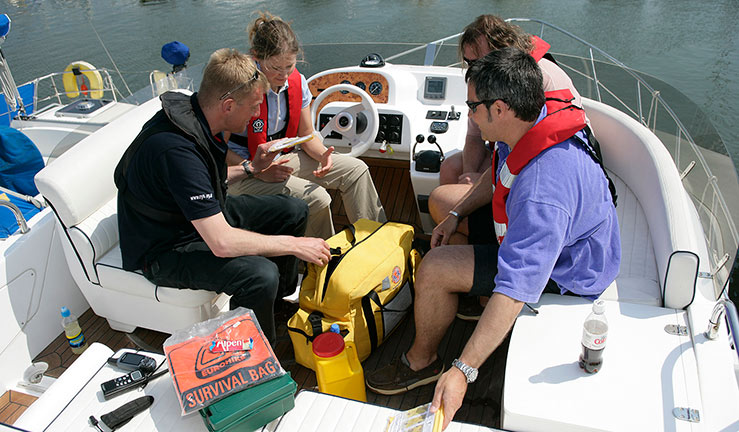
1. Land and sea are different
Having some land based first aid knowledge is always better than none. However, with the compact nature of some boats, certain things like resuscitation or the recovery position will need to be slightly modified.
The RYA First Aid course is specifically designed for a boating environment. This one-day course offers working knowledge of first aid for those taking to inland waters or up to 60 miles from the coast.
Topics covered include CPR, drowning, bleeding, head injuries, cold water shock and hypothermia, choosing a first aid kit for the boat and getting medical assistance. All RYA first aid instructors have a wealth of practical boating experience, helping to equip you with all the knowledge you need.
It shouldn’t just be skippers who take the course, as it’s difficult for one person to navigate, use the radio and resuscitate at the same time. The more people with basic first aid onboard, the better an emergency response could be.
2. Packing a first aid kit
Think logically about what could happen. What would you take on an ordinary holiday a little off the beaten track perhaps?
It all depends on your family’s needs, so you could include bandages, plasters, pain relief tablets, indigestion tablets, diarrhoea medication or allergy treatment. Always remember to take prescription medications and your glasses to read the instructions!
Motion sickness tablets are a must. Seasickness can strike even the most experienced boaters. It’s miserable but can become serious if you get severely dehydrated. Sickness can also cause other medical problems if your regular medication is not absorbed properly.
High factor sun cream is also compulsory as prolonged exposure to the sun, combined with light reflecting off the water, makes sunburn a high risk.
3. Calling for help
In an emergency, your mobile phone might not have enough signal to call for help. Therefore, it’s always a good idea to carry a fixed or handheld VHF radio for out-of-range areas.
Most modern sets have digital selective calling and inbuilt GPS. In a ‘999’ situation a VHF can transmit your position, sending a distress message to the coastguard and any other VHF radios in range.
If you are out of range to the coastguard, a vessel closer to the coast or one which has longer-range communication equipment can relay your message to the coastguard.
Using VHF means the coastguard can co-ordinate the incident response, leaving you and your crew to concentrate on the casualty. They can also provide medical advice from a doctor, organise a helicopter or lifeboat, escort your boat into a marina and arrange an ambulance on land.
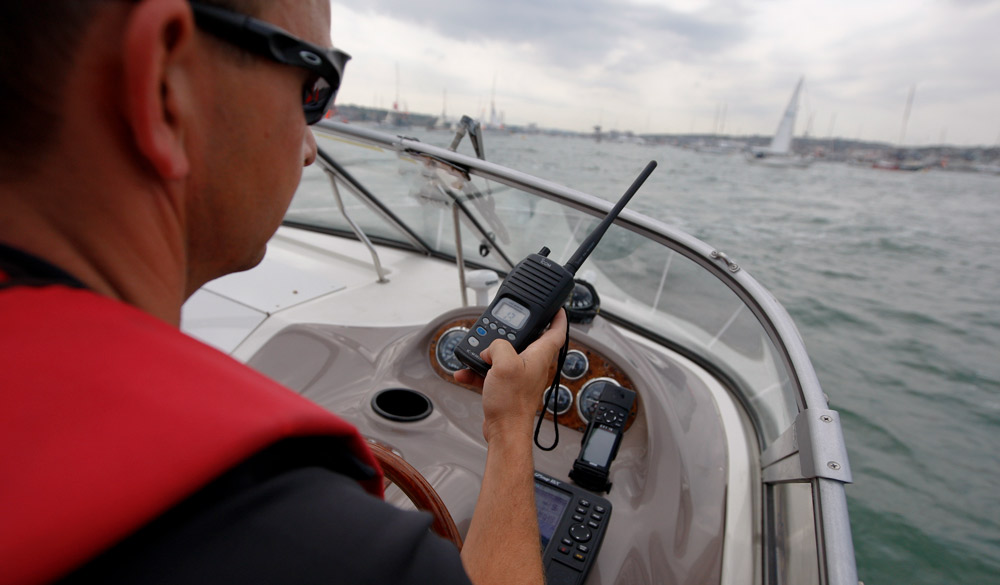
4. Be aware of cold-water shock
Even if it’s 30°c and sunny cold water shock is a danger. Water temperature off the UK can be as low as 5°c in February and rarely rise above 18°c in the summer.
Cold water shock causes involuntary bodily reflexes when suddenly submerged in cold water. This includes a rapid increase in heart and blood pressure that can result in cardiac arrest, even if you are in good health. A strong swimming ability will have no impact on your body’s involuntary response to cold water shock.
These initial responses will settle within a few minutes and wearing a life jacket will reduce the risk of water inhalation by keeping your head upright above the water. If you experience cold water shock, stay calm and try not to attempt any exertion until your breathing is under control.
Getting a casualty out of the water is the priority, then an awareness of hyperthermia treatment is paramount.
5. Always do something
In a desperate emergency, when resuscitation is required, most people worry that they can’t remember the latest method of CPR. However, advice from the Resuscitation Council suggests that in all cases it’s better to do something rather than nothing.
In serious situations be persistent. There are some extraordinary cases of people surviving through the prolonged CPR efforts of a team.
Typically, on a boat it will be groups of friends and families, people who know how each other well. If someone starts behaving out of character, act on it. Boating shouldn’t be stressful, and thankfully serious incidents are rare. But getting to grips with basic sailing first aid will ensure everyone on board will be in good hands should the unexpected occur.
Be prepared for the water this season with the RYA’s First Aid course and the RYA First Aid book or eBook .

Chieftain Training
RYA & STCW Courses – Sail, Power, Super-Yacht & Workboat
Route to RYA Yachtmaster (Power or Sail)
The Yachtmaster Certificate of Competence Exam can be taken in a powered or sail craft (i.e. there are two separate disciplines). Much of the route (the shorebased courses) is identical for both disciplines.
There are actually three levels of Yachtmaster ( Coastal, Offshore and Ocean). When people refer to “Yachtmaster” they are generally referring to Yachtmaster Offshore. This article focuses on Coastal and Offshore, our separate article, “ What is an Ocean Yachtmaster ” deals with the higher level of the three.

The route to Yachtmaster Coastal and Offshore is similar, candidates for both will have followed a similar pathway, but the offshore candidate will have logged considerably more experience prior to exam and will be pushed harder during the exam. Visit our helpful RYA Advanced and Yachtmaster Qualifying mileage page for more information.
The route to Yachtmaster has several stepping stones, most students work through Day Skipper Shorebased and Day Skipper Practical and then Coastal Skipper , however if you already have relevant experience and skills you can consider skipping these courses.
Before considering embarking on a Yachtmaster practical week , you must arm yourself with;
- Qualifying mileage (power or sail as appropriate)
- RYA SRC (1 day) or
- Higher level GMDSS Radio Certificate of Competence (3-8 day)
- RYA First Aid (1 day) or
- STCW Elementary First Aid (1 day) or
- STCW Medical First Aid (4 day) or
- Seafish First Aid
- RYA Coastal Skipper & Yachtmaster Offshore Shorebased (6 days or online)
- Knowledge level to RYA Radar (1 day)
- Knowledge level to RYA Diesel (1 day)
You are also strongly advised to take the RYA Sea Survival or STW PST Course (1 day), which is required if you intend to operate as a commercial Yachtmaster (most candidates take the exam for commercial reasons and add the RYA Commercial Endorsement however some are leisure boaters and do it for themselves).

Our Yachtmaster practical (preparation and exam) week is 5 days, it takes place on board our motorboat and results in the Yachtmaster Coastal or Offshore (Power) Certificates of Competence . If you prefer to take the sail exam we can put you in touch with a sail school once you have all of the above shorebased courses. During the prep week our Instructor will take you through many of the exercises the examiner is likely to throw at you on the final day. We operate the prep week with a maximum of 3 students.

Share this:
- Certificates of Competence
RYA Yachtmaster Coastal Exam
Full details of the exam syllabus and requirements are shown in the RYA Yachtmaster Scheme and Logbook (G158) available from the RYA webshop.
RYA Yachtmaster Coastal practical exams can be taken under sail or power and your certificate will be endorsed accordingly. You or a training centre provide the boat and the RYA provides an examiner. Note: All qualifying sea time and passages must be gained on vessels appropriate to the type of exam i.e. gained in sailing vessels for a sail exam and power vessels for a power exam.
The exam will include an assessment of your skippering skills, boat handling, general seamanship, navigation, safety awareness and knowledge of the IRPCS (collision regulations), meteorology and signals. You will be set tasks to demonstrate your ability and may also be asked questions on any part of the syllabus for all practical and shorebased courses up to RYA Yachtmaster Coastal level.
RYA Yachtmaster Coastal exam pre-requisites
| Documented minimum sea time completed on a seagoing sailing or motor yacht (as appropriate) in the last 10 years: if an RYA Coastal Skipper Practical course completion certificate or an RYA Yachtmaster Coastal Certificate of Competence is held ; if an RYA Coastal Skipper Practical course completion certificate or an RYA Yachtmaster Coastal Certificate of Competence is held ;At least half the qualifying sea time should be gain in tidal waters. Contact if your sea time is on a yacht greater than 24m and 500gt. | |
| Practical | |
| . | |
| 6-10 hours for one candidate, 8-14 hours for two candidates | |
| 17 at the time of the exam. |
Boats used for exams
You may use your own boat or a boat that you have chartered or borrowed. You will be responsible for ensuring the boat is seaworthy and suitable for the area in which the exam takes place and equipped as shown below.
The boat used must be between 7m and 18m LOA and be in sound, seaworthy condition, equipped to the standard set out in the RYA book Cruising Yacht Safety (code C8). The boat must be equipped with a full up to date set of charts and navigational publications and be efficiently crewed, as the examiner will not take part in the management of the boat during the exam.
Before you book your exam please check that you:
- can provide a boat (either your own or a training centre's boat)
- have completed the required mileage and experience as skipper
- hold an SRC (Short Range Certificate) or higher level GMDSS radio operators qualification
- hold a valid first aid certificate
- have read the syllabus in the RYA Logbook (code G158)
- have read and comply with the pre-requisites above.
Additionally if not on the boat, you will need to bring to the exam:
- laminated or waterproof charts
- GPS set (may be hand held)
- tide tables
- pilotage information for the local area, eg pilot books, port information etc
- plotting instruments.
- Photographic ID card or document, such as a passport or driving licence
If you need your Certificate of Competence in order to work on board a commercial craft subject the MCA's codes of practice, you will need to get it commercially endorsed .
Useful links
Arranging your exam, commercial endorsements, exam payments service, mca manning requirements, professional qualifications.
Russia Travel Blog | All about Russia in English
- About our blog
- RussiaTrek.org
Sidebar →
- Architecture
- Entertainment
- RussiaTrek.org News

- Leave a tip to support us
- Support RussiaTrek.org via Boosty
- Support RussiaTrek.org via Hipolink
- Travel Guide to Ukraine
- Comments RSS
← Sidebar
Maykop – the view from above
No comments · Posted by Sergei Rzhevsky in Cities , Travel
Maykop (“the valley of apple trees” from the Adyghe language) is a city with a population of about 139 thousand people located in the south of European Russia, the capital of the Republic of Adygea .
The main urban development of Maykop was carried out in Soviet times and it was done quite systematically. The streets of the city for the most part are strictly perpendicular to each other, its entire center consists of identical city blocks. Photos by: Slava Stepanov .

The main mosque of Maykop. Built in 1999-2000, it is also the seat of the Spiritual Administration of Muslims of the Republic of Adygea and Krasnodar Krai .

Monument “Unity and Harmony” – a memorial complex made in the form of an Adyghe hearth, which since ancient times has been considered the material and spiritual basis of the home and family. Local people call it just “hearth”. It is dedicated to the memory of the victims of the Caucasian War (1817-1864) and is a symbol of unity of all residents of the republic.

Monument “Forever with Russia” made in the form of two warriors who personify Adygea and Russia. It was opened in honor of the 400th anniversary of the union of Adygea and Russia.

State Philharmonic of the Republic of Adygea.

Administration of the city of Maykop.

Lenin Square.

Administration of the Head of the Republic of Adygea and the Cabinet of Ministers of the Republic of Adygea.

Orthodox church in Maykop.

Yakub Koblev Sports Palace. Opened on October 1, 2015, it bears the name of the legendary coach and rector of the Institute of Physical Culture and Judo Yakub Koblev.

Welcome to Maykop!

Tags: Adygeya Republic · Maykop city
You might also like:

Happy New Year 2022!
Lake Teletskoye – one of the natural symbols of Russia >>
No comments yet.
Leave a reply.
XHTML: You can use these tags: <a href="" title=""> <abbr title=""> <acronym title=""> <b> <blockquote cite=""> <cite> <code> <del datetime=""> <em> <i> <q cite=""> <s> <strike> <strong>
- September 2024
- August 2024
- February 2024
- January 2024
- December 2023
- November 2023
- October 2023

IMAGES
VIDEO
COMMENTS
Learn how to provide first aid afloat with the RYA First Aid course, which is accepted by the MCA and World Sailing for small commercial vessels and offshore sailing. Find out the minimum requirements, course outcomes, certificate validity and alternative qualifications for different types of RYA instructors and endorsements.
Learn first aid skills for boating emergencies with this one-day course approved by the MCA. Find centres, download brochure and buy books for this course on the RYA website.
RYA Yachtmaster First Aid Requirements. One of the prerequisites for taking the RYA Yachtmaster Coastal or Yachtmaster Offshore qualification is having a valid first aid certificate. First aid at sea is an essential skill, as in the unlikely event of a medical emergency, prompt action and first aid knowledge can save lives.
th these regulations.Candidates for the Advanced Powerboat, Yachtmaster Coastal or Offshore exams must present a first aid certificate which meets the minimum requirements set out at the. of this guidance. The RYA First Aid course should be the default training due to its widespread availability, relevance and acceptability for working af.
Learn about the RYA First Aid course, the default first aid training for RYA instructors and commercial endorsements. Find out the minimum requirements, course outcomes, duration, refreshment and alternatives for different types of RYA qualifications.
We run RYA First Aid with anything from 2 to 12 students. We are happy to arrange 1:1 on request. The RYA provide all of their centres with guidance on the ratio of training equipment to students. While their ratios work we pride ourselves on surpassing the minimum equipment ratio many times over. We don't believe in just "packing you in".
RYA First Aid . Our one-day first aid course has been specifically developed for water users and covers everything from CPR and head injuries to cold water shock. ... From RYA Yachtmaster® to Advanced Powerboat, RYA Certificates of Competence are the ultimate aim of aspiring skippers. Find out more about the required experience and book your exam.
In a medical emergency a little first aid knowledge and immediate action can save lives, especially in remote locations. This one day course is designed to provide a working knowledge of first aid for people using small craft and to support skippers of yachts and motor vessels. It fulfils the requirements for skippers of small craft working ...
The RYA First Aid course covers first aid skills, techniques and knowledge from a boating perspective. It is aimed at anyone who goes afloat, whether on inland waters, rivers, estuaries or on cross channel passages. In a medical emergency quick, measured and appropriate response is vital for the immediate welfare and well-being of a casualty.
RYA Marine First Aid. Our one-day course covers all the usual first aid subjects, but from a boating perspective. It is aimed at anyone who goes afloat, whether on inland waters, rivers, estuaries or on cross channel passages. In a medical emergency a little first aid knowledge and immediate action can save lives, especially in remote locations.
RYA First Aid. First Aid course £99. A one day course that we hope you will never need but if you do it could be invaluable... Our one-day course covers all the usual first aid subjects, but from a boating perspective. It is aimed at anyone who goes afloat, whether on inland waters, rivers, estuaries or on cross channel passages.
RYA National First Aid Advisor and Yachtmaster Examiner, Sara Hopkinson, explains why it's always a good idea to consider first aid. ... The RYA First Aid course is specifically designed for a boating environment. This one-day course offers working knowledge of first aid for those taking to inland waters or up to 60 miles from the coast.
Adygea is a federal subject of Russia in the Southern Federal District, an enclave within Krasnodar Krai. It has a rich history, diverse culture, and scenic nature, including the Caucasus Mountains, waterfalls, caves, and dolmens.
Learn how to become a competent skipper of a cruising yacht on any passage up to 150 miles from harbour. Find out the minimum sea time, exam duration, boat equipment, certificates and other pre-requisites for the RYA Yachtmaster Offshore exam.
Route to RYA Yachtmaster (Power or Sail) The Yachtmaster Certificate of Competence Exam can be taken in a powered or sail craft (i.e. there are two separate disciplines). Much of the route (the shorebased courses) is identical for both disciplines. There are actually three levels of Yachtmaster (Coastal, Offshore and Ocean).
The Republic of Adygea, (/ ˌ ɑː d ɪ ˈ ɡ eɪ ə /) [11] [a] also known as the Adygean Republic, is a republic of Russia.It is situated in the North Caucasus of Eastern Europe.The republic is a part of the Southern Federal District, and covers an area of 7,600 square kilometers (2,900 sq mi), with a population of roughly 496,934 residents. [7] It is an enclave within Krasnodar Krai and is ...
RYA Yachtmaster is a certificate of competence for skippers who have sufficient experience, certification and seatime. Learn how to book an exam, prepare for it and work as an RYA Yachtmaster with commercial endorsements.
Maykop is the capital of Adygea republic and a green city with a rich cultural heritage. Learn about its history, attractions, climate, transport, and industry from this web page.
Learn about the qualifications, pre-requisites, exam duration and boat requirements for the RYA Yachtmaster Coastal exam. The exam tests your skippering skills, navigation, seamanship and knowledge of the IRPCS.
Explore the capital of the Republic of Adygea, a city with a population of about 139 thousand people, through photos and descriptions. See the main landmarks, monuments, and attractions of Maykop, such as the mosque, the hearth, and the sports palace.